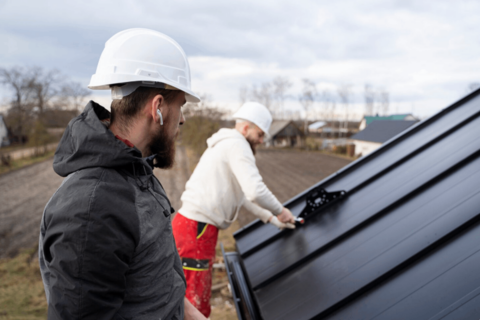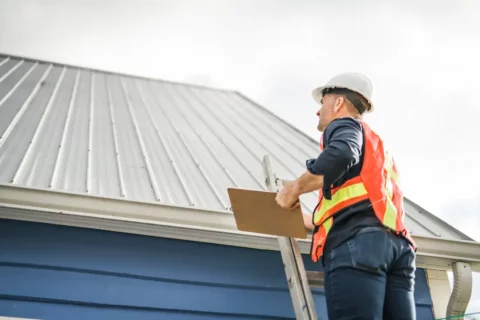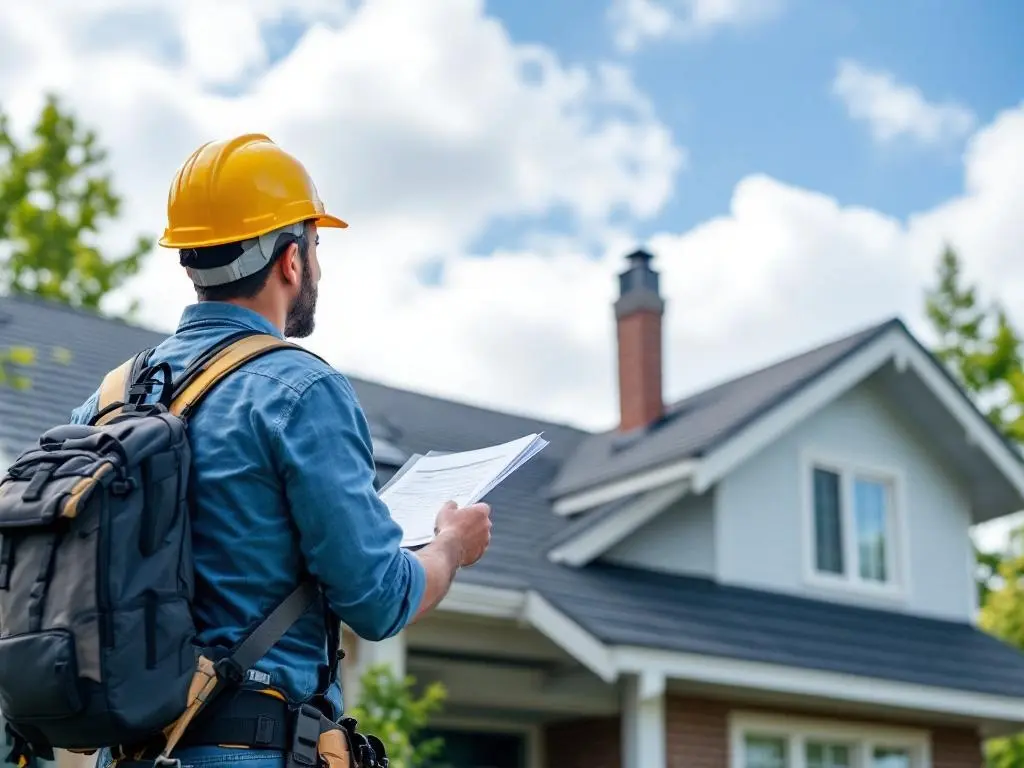
What to Expect From a Professional Roofing Estimate
When it’s time for a roof repair or replacement, one of the first steps is getting a professional estimate. Whether you’re a homeowner dealing with storm damage or a property manager looking to upgrade a commercial roof, understanding what to expect from a roofing estimate can help you make informed decisions.
This guide breaks down everything included in a reliable estimate, how Denver roofing companies typically approach the process, and what red flags to watch out for.
Why Roofing Estimates Matter
Roofing projects, whether repair, replacement, or installation, are significant investments. A detailed and transparent estimate not only helps you budget appropriately but also provides insight into how a contractor operates.
Here in Denver, roof estimates are significant because of the region’s unique weather conditions. Hailstorms, heavy snow, and high UV exposure all affect roofing materials and labor requirements. Local expertise matters, and so does a clear proposal that reflects those local factors.
Step-by-Step: What Happens During a Roofing Estimate
If you’ve never had a roofing estimate before, here’s a general idea of how it goes with reputable Denver roofers:
1. Initial Contact and Scheduling
Once you reach out by phone, through our website form, or via a referral, a representative will schedule a time to visit your property. Most roofing companies offer this inspection at no cost and without obligation.
2. On-Site Inspection
A professional roofer will arrive to assess the condition of your roof. They may look for:
- Missing or damaged shingles
- Signs of leaks or water damage
- Flashing and gutter condition
- Structural concerns
- Ventilation and insulation
Drones or infrared cameras may be used to capture images in hard-to-see areas, especially on larger commercial buildings.
3. Measurements and Photos
Accurate measurements are essential for determining material requirements. Roofers may use tape measures, apps like RoofSnap, or satellite imagery to assess roof area, pitch, and complexity. Expect them to take photos for documentation.
4. Discussion of Your Needs
You’ll likely be asked about:
- How long do you plan to stay in the home
- Budget preferences
- Past roof issues
- Whether you’re filing an insurance claim
This helps the contractor tailor the estimate to your goals.
What’s Included in a Roofing Estimate?
A trustworthy Denver roofing estimate should be more than just a number on a sticky note. It should be a written document or digital file that includes:
1. Scope of Work
This section describes the work that will be done, whether it involves a full replacement, partial repair, or complete new installation. It may include tasks like:
- Tearing off old roofing
- Installing underlayment and drip edge
- Replacing flashing
- Installing ventilation or skylights
2. Materials and Brand Names
Expect to see specific roofing materials listed, including:
- Shingle type (e.g., asphalt, metal, tile)
- Manufacturer (e.g., Owens Corning, GAF)
- Underlayment and fastener types
- Gutter or flashing materials, if applicable
This is crucial for comparing bids. Vague terms like “high-quality materials” can be a red flag.
3. Labor Costs
This refers to the labor cost for the roofing crew. While exact breakdowns may vary, it should be clear how labor is factored into the total.
4. Timeline
Look for:
- Estimated project start date
- Duration of the job
- Any weather-related contingencies
In Denver, roofing timelines can be affected by seasonal storms or freeze-thaw cycles. Experienced companies will explain these variables upfront.
5. Permits and Inspections
A professional estimate should indicate whether permit fees and inspection scheduling are included. In Denver, permits are required for most roofing jobs, and the city’s building department often inspects work mid- and post-project.
6. Warranty Details
A strong estimate outlines warranty coverage for both materials and labor. There are typically two types:
- Manufacturer’s warranty (covers material defects)
- Workmanship warranty (covers errors during installation)
Ask how long each lasts and what’s required to maintain them.
7. Clean-Up and Disposal
The estimate should outline how debris, old roofing material, and nails will be removed and disposed of. This is especially important in residential neighborhoods with kids or pets.
8. Total Cost and Payment Schedule
A clear breakdown of:
- Total project cost
- Required deposit (if any)
- Progress payment milestones
- Final payment due date
Avoid contractors who ask for the full amount upfront.
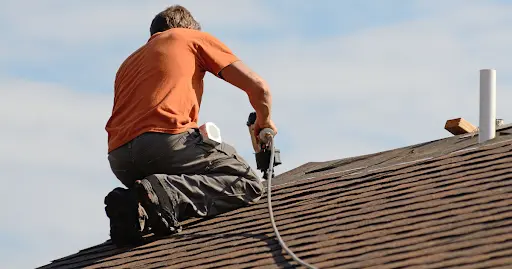
How Denver Roofing Companies Handle Insurance Work
Many Denver homeowners rely on insurance to cover hail or wind damage to their roofs. A quality roofer will be familiar with insurance processes and can:
- Provide a written estimate suitable for your adjuster
- Help you identify storm-related damage
- Offer Xactimate-formatted estimates (standard in insurance work)
- Meet with your adjuster if needed
While they can guide you, beware of any roofer who says they’ll “waive your deductible”—this is against Colorado law and could put your claim at risk.
Red Flags to Watch Out For
Not every roofer plays by the same rules. When reviewing estimates, be cautious of:
Estimates That Are Too Low
They may cut corners on materials or labor.
Lack of Itemization
You should know what you’re paying for.
Pressure to Sign Immediately
Reputable companies give you time to review.
No Local Address or References
Trust local Denver roofing companies with proven track records.
Vague Warranty Terms
Get everything in writing.
Questions to Ask Your Roofer After the Estimate
Before moving forward, it’s smart to clarify a few things:
- Are you licensed and insured in the state of Colorado?
- Can I see examples of past projects in the Denver area?
- What is your process if the scope of work changes during the project?
- How do you handle inclement weather delays?
- Who will be my main point of contact?
Reliable contractors are happy to answer these.
How Long Should You Wait for an Estimate?
Most Denver roofing companies deliver an estimate within 24–72 hours after the inspection. For large or complex jobs, completion may take a bit longer. If a week goes by and you’ve heard nothing, that may be a sign to look elsewhere.
Why It Pays to Choose a Local Roofer in Denver
Choosing a locally based company like 303 Roofer has its advantages:
Knowledge of Local Codes
Denver has unique permitting and code enforcement.
Understanding of Regional Weather Patterns
From hail to heavy snow loads.
Accountability
Local roofers rely on their reputation and community presence to maintain their credibility.
Access to Suppliers
Faster response times for material delivery or warranty claims.
303 Roofer provides detailed, no-pressure estimates backed by years of experience in the Denver metro area.
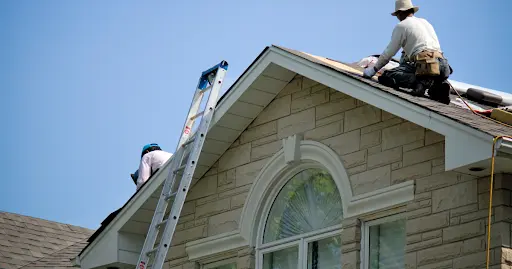
Roofing Estimates Are About More Than Price
The best roofing estimate isn’t just the cheapest, it’s the one that helps you feel confident about the company, the materials, and the final result.
By knowing what to expect from a professional estimate and how Denver roofing companies operate, you can move forward with clarity and peace of mind.
Ready for Your Estimate?
Schedule a Free, No-Pressure Roofing Estimate Today
Whether you’re replacing an aging roof or dealing with storm damage, a professional estimate from a trusted local company makes all the difference. At 303 Roofer, we take pride in our transparency, expertise, and customer care from the very first call.
Call now or visit https://303roofer.com to book your roofing estimate in Denver.

